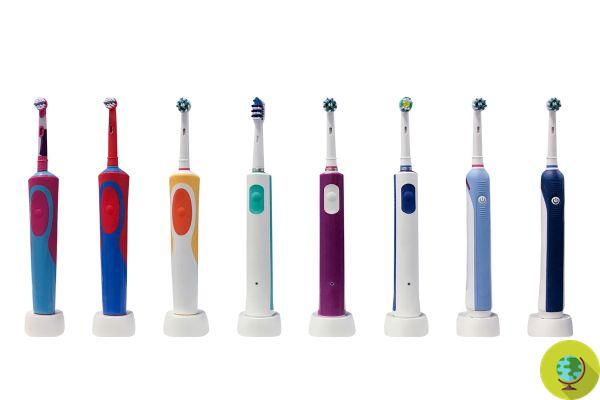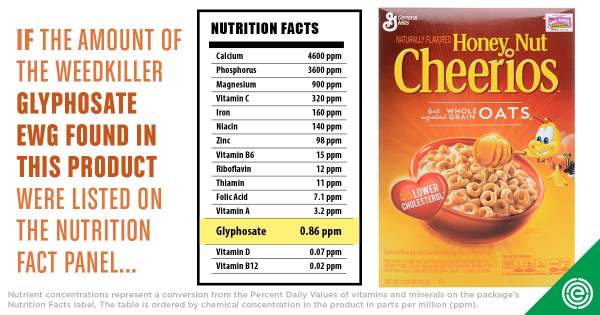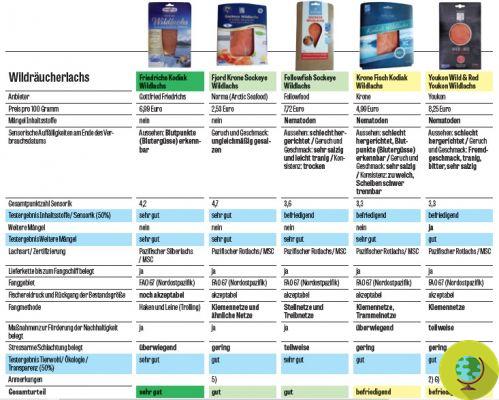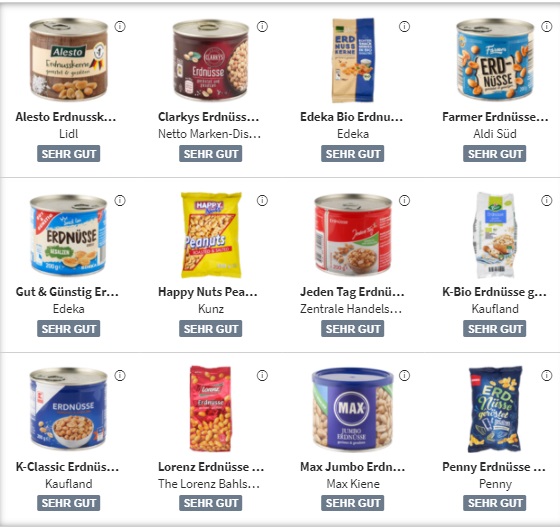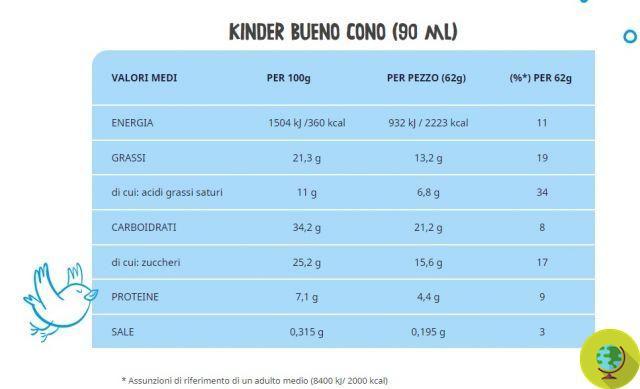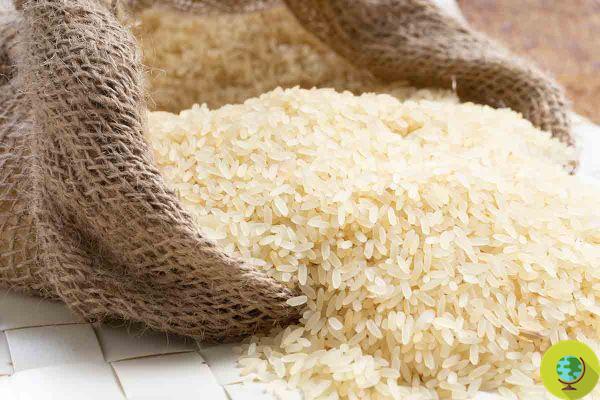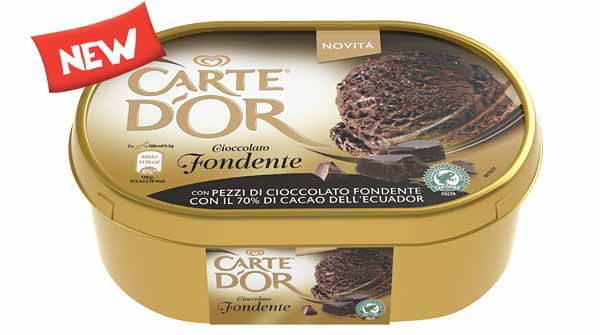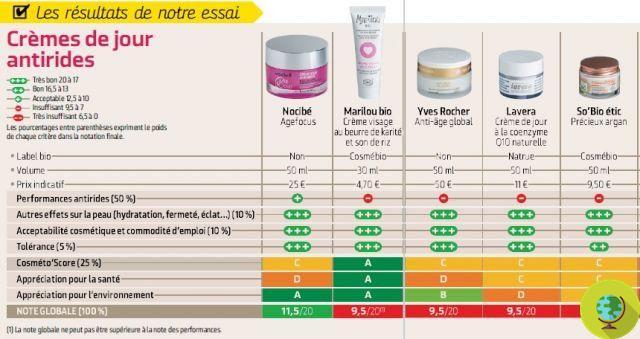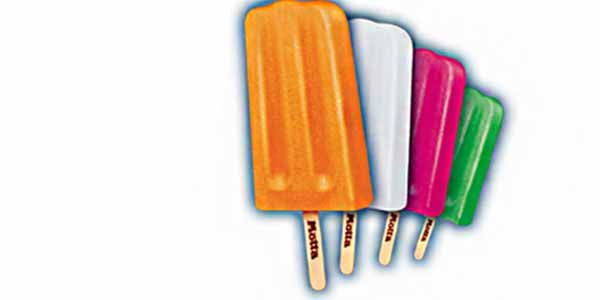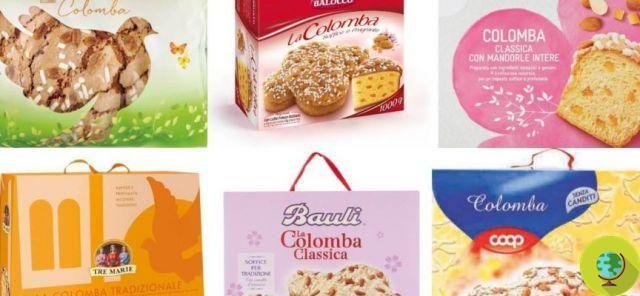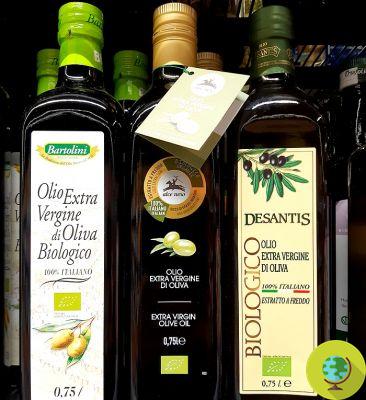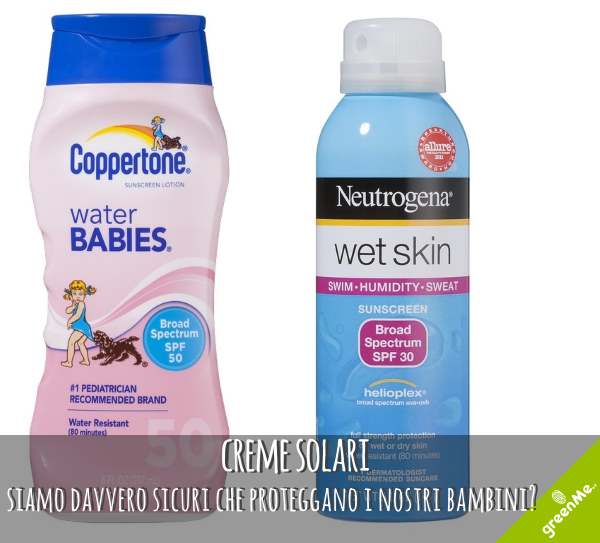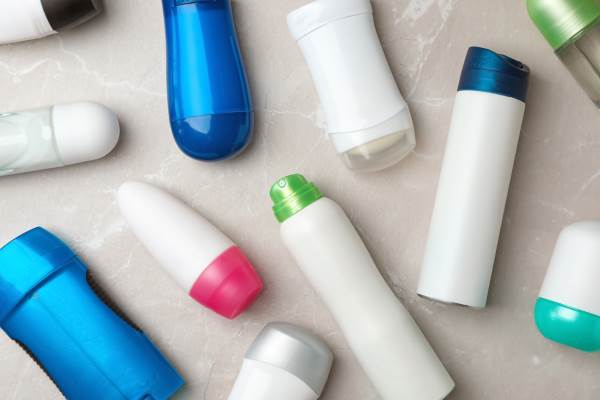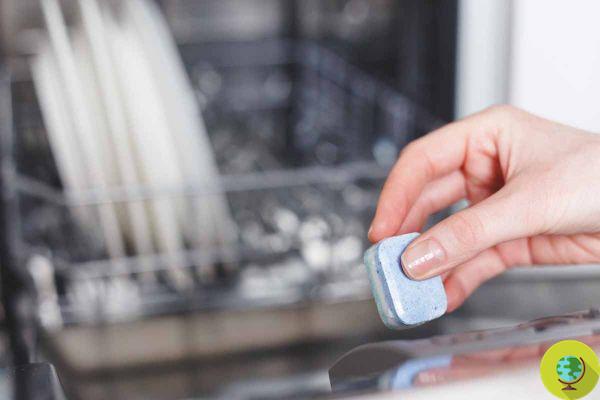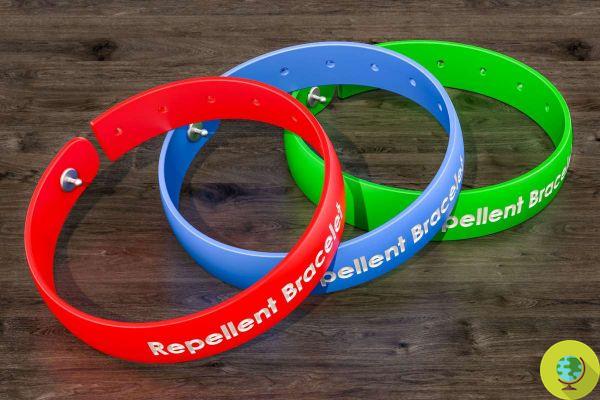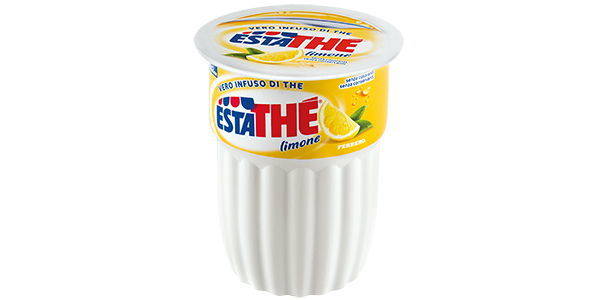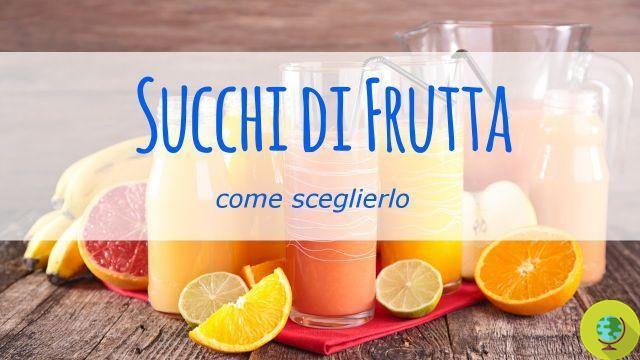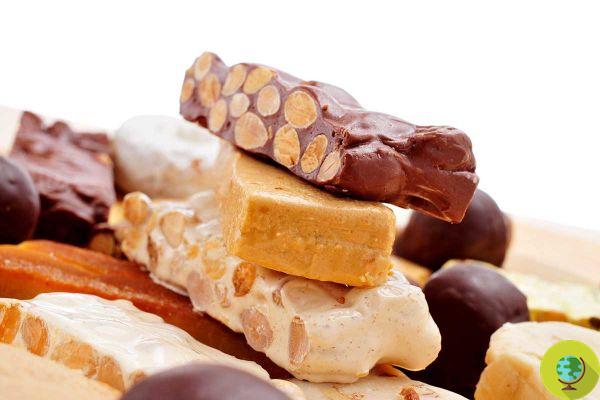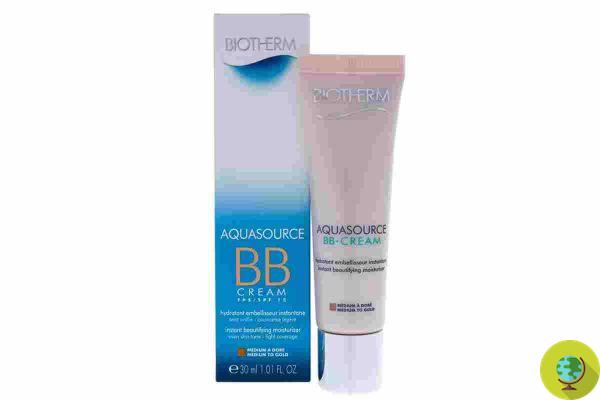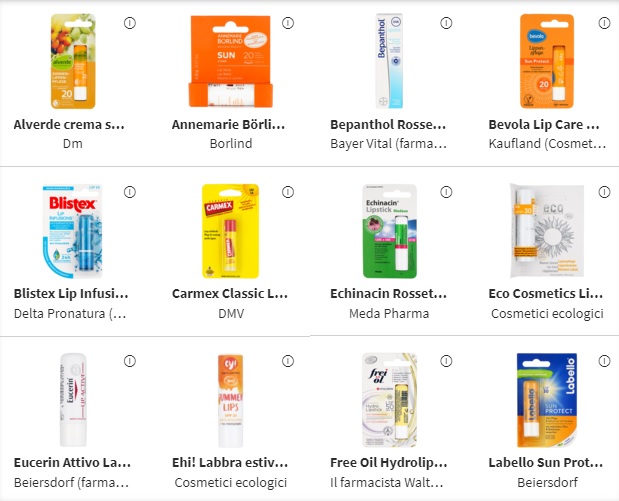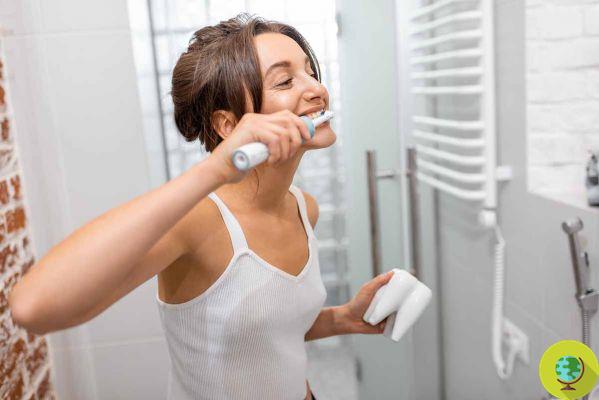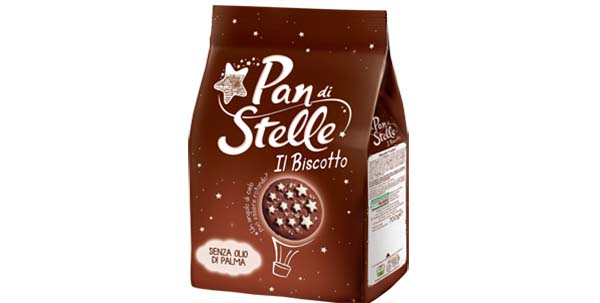A new test shows that baby wipes are free from harmful substances but still remain a polluting product for the environment
Don't store avocado like this: it's dangerousThose with babies or young children generally use disposable wet wipes when they need to do a quick clean or when changing nappies. A new test compared different brands to see if they contain ingredients that are harmful to health or problematic for the environment.
To clean children it would be better to use water or a damp reusable cloth but, for example when we are away from home, it is practical and convenient to use wet wipes. It is therefore no wonder that these disposable products have long become a "must" to always keep in your bag when you go out with your children.
In fact, they are not only used when changing nappies, but also to clean hands, parts of the face or even dirty objects and clothes.
But what's inside these products? Are they really gentle and safe for our babies? To understand this, the German magazine Oko-Test compared 25 products, all fragrance-free wipes.
Read also: Homemade wet wipes
Index
The results
Let's start with the good news: most of the wet wipes sampled in the test turned out to be "very good". In fact, compared to what happened before (the magazine had already conducted a similar analysis 3 years ago), most of the problematic substances have disappeared from the composition of the wet wipes. It therefore seems that, in recent times, manufacturers have improved their products.
The previous test, in fact, had highlighted the presence of problematic preservatives in various brands, mainly the PHMB compound, which is now no longer present in any of the products tested.
However, not all baby wipes were found to be completely free of controversial substances. In a single product, the wipes Water Wipes 99,9% Acqua i have been found organohalogen compounds, a group that includes several thousand substances, some of which are carcinogenic, many of which are allergenic and almost all of which are harmful to the environment.
In the case of wet wipes, Oko-test specifies, the compounds could be leftovers from nonwoven bleaching. In some processes, manufacturers may still use chlorine compounds, which could explain the residues.
Despite this, the Water Wipes were rated "satisfactory" together with the wipes Pampers Aqua Pure 99% d’Acqua. In last position, but still snatching a pass, we find another Pampers Sensitive reference.
Both Pampers wipes contained then PEG, compounds which, as the magazine points out, can make the skin more permeable to foreign substances.
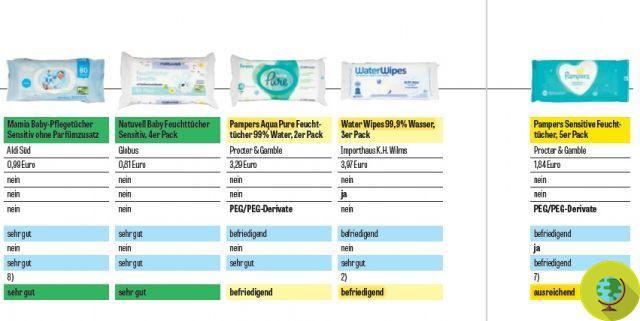
@Okotest
All the wipes had a high percentage of water, the experts then wondered if this could be a greater risk for the formation of germs. In fact, theoretically, the more water there is in a product, the more it acts as a breeding ground for microorganisms. The wipes were therefore also analyzed to determine if they were contaminated with dangerous germs, such as Escherichia coli. Luckily this doesn't seem to be a wipes problem - all brands have performed well in that respect.
Between the best wipes we point out the branded ones Hipp, Lupilu di Lidl e Naty.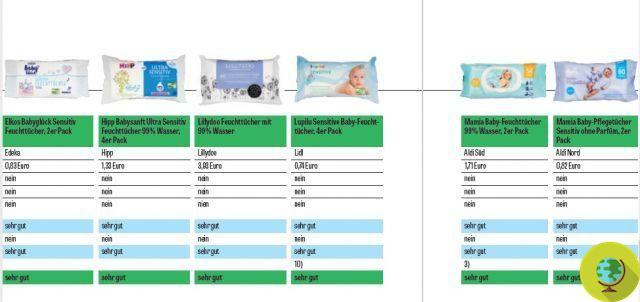
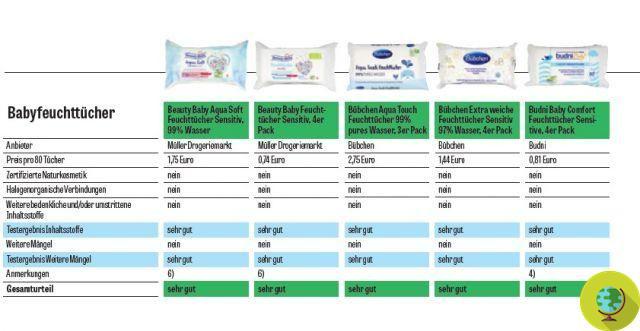
@Okotest
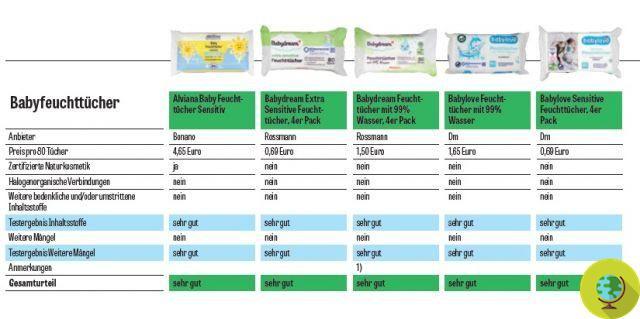
@Okotest
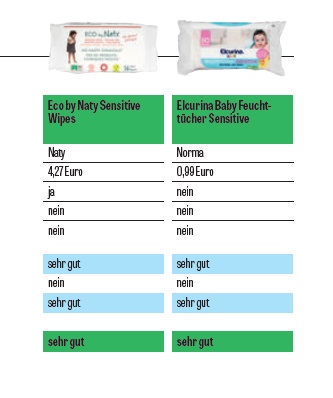
@Okotest
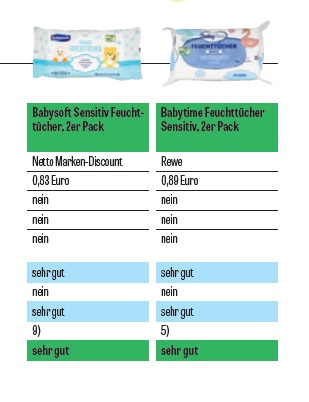
@Okotest
The environmental impact of wipes
Good news on the health front of our children, then, but what is the environmental impact of wet wipes?
The problem remains, as always, that of the waste that is produced. They are in fact disposable wipes. Many manufacturers are gradually switching to "biodegradable" alternatives, however, the extent of the ecological benefit of such products is considered controversial, the magazine specifies. In fact, these wipes still cause problems, for example if consumers dispose of them by throwing them in the toilet.
The German Federal Environment Agency then stresses the risk that the claim "biodegradable" could lead consumers to dispose of wet wipes even more recklessly, because they mistakenly assume that this is not a serious problem for the environment or the sewage system.
The British Marine Conservation Society, during one of its waste collection campaigns, found 19 wet wipes on just 100 meters of beach. It therefore seems that consumers are unaware of the fact that wipes are often made with synthetic fibers derived from petroleum and therefore take a long time to decompose.
It is certainly good news that manufacturers are moving towards "biodegradable" but the best choice is still to use water or a damp cloth.
Update 20/05, the replica of WaterWipes
WaterWipes wrote to us to replicate the results of this test. A company spokesperson said:
“As we were not involved in running OkoTest, we undertook a series of independent tests and safety assessments. Our independent tests have identified that the levels of compounds in our wipes are almost non-existent and are well below the EU regulatory limits set on cosmetic products. Our wipes, which are now biodegradable, are in no way harmful to the skin and we are proud to be trusted by parents and neonatal units around the world to take care of the most sensitive skin "
Fonte: Eco-Test
Read also:
- Baby wet wipes: 1 in 3 contains phenoxyethanol. The best and worst brands according to Altroconsumo
- Baby shampoo: still too many allergens and Pegs in some brands. Among the worst Chicco and Euphidra
- Creams for babies and children compared: excellent Lavera, Hipp and Weleda, failed Nivea and Penaten




